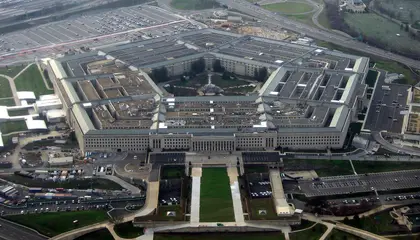Classified military documents detailing US and NATO plans on building up the armed forces of Ukraine before the planned counteroffensive at the front have appeared on Twitter and Telegram, prompting a Pentagon investigation, says the New York Times (NYT), citing sources in the White House.
The leaked data, which has been actively distributed on pro-Kremlin social media, includes information on schedules for arms supply, troop numbers and ammunition costs. The documents, marked "Top Secret" and dated March 1, 2023, do not provide details on how, when, and where Ukraine intends to launch its counteroffensive.
- Obtain the most current Ukraine news articles released today.
- Find the newest Ukraine news pieces that came out today.
JOIN US ON TELEGRAM
Follow our coverage of the war on the @Kyivpost_official.
Following the NYT story, on Friday, April 7 in the afternoon, Mykhailo Podolyak, an advisor in the Office of the President of Ukraine, posted that the reported leaked information is “virtual fake leaks” by Russian intelligence.
“Moscow is eager to disrupt Ukraine’s counteroffensive,” Podolyak said. “But it will see the real plans on the ground. Soon.”
According to the NYT, the classified documents contain data on 12 combat brigades, created by the AFU, of which nine are being prepared and supplied by the United States and NATO. Preparations for some of them are planned to be completed by March 31 and the rest by Apr 30. Each brigade consists of four to five thousand soldiers.
According to the classified documents, more than 250 tanks and 350 mechanized vehicles were required for those nine brigades.

‘Europe Must Stand Up’ – EU Lawmakers Clash Over Trump’s Return, Musk’s Political Meddling
Military analysts interviewed by the publication say that it appeared that the documents had been partially edited before being released. In particular, information relating to casualty numbers had been altered so that they overestimated the number of Ukrainians killed while underestimating the data for Russians.
The manipulated documents state that only 16,000 - 17,500 Russian soldiers had died, compared with Ukrainian losses of 71,500.
While some of the slides look authentic and can give valuable information to Russian intelligence, experts believe that changes to the casualty figures were attempts at disinformation on the part of Moscow.
U.S. administration officials are said to be "working on deleting" the files, that appeared on social networks earlier in the week, but they were still posted on the evening of Apr. 6.
"We are aware of the social media posts and the department is looking into the matter," Pentagon Deputy Press Secretary Sabrina Singh told reporters.
You can also highlight the text and press Ctrl + Enter










